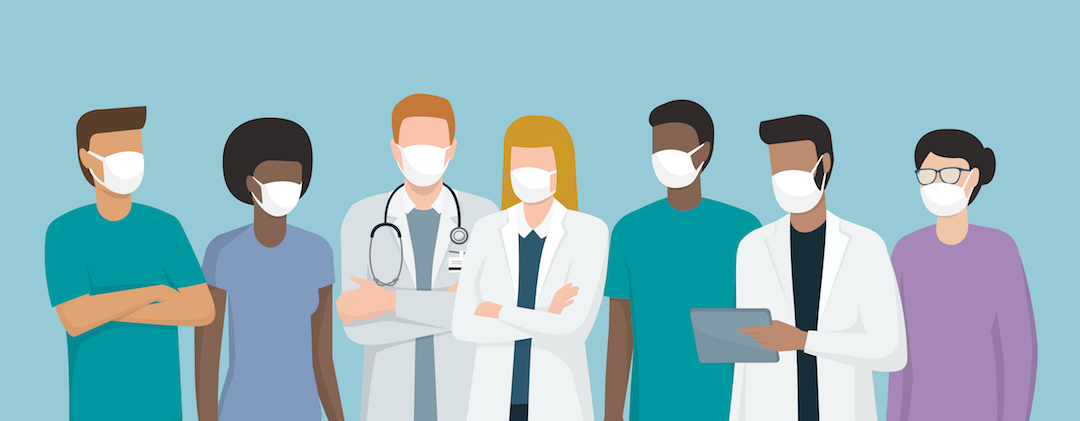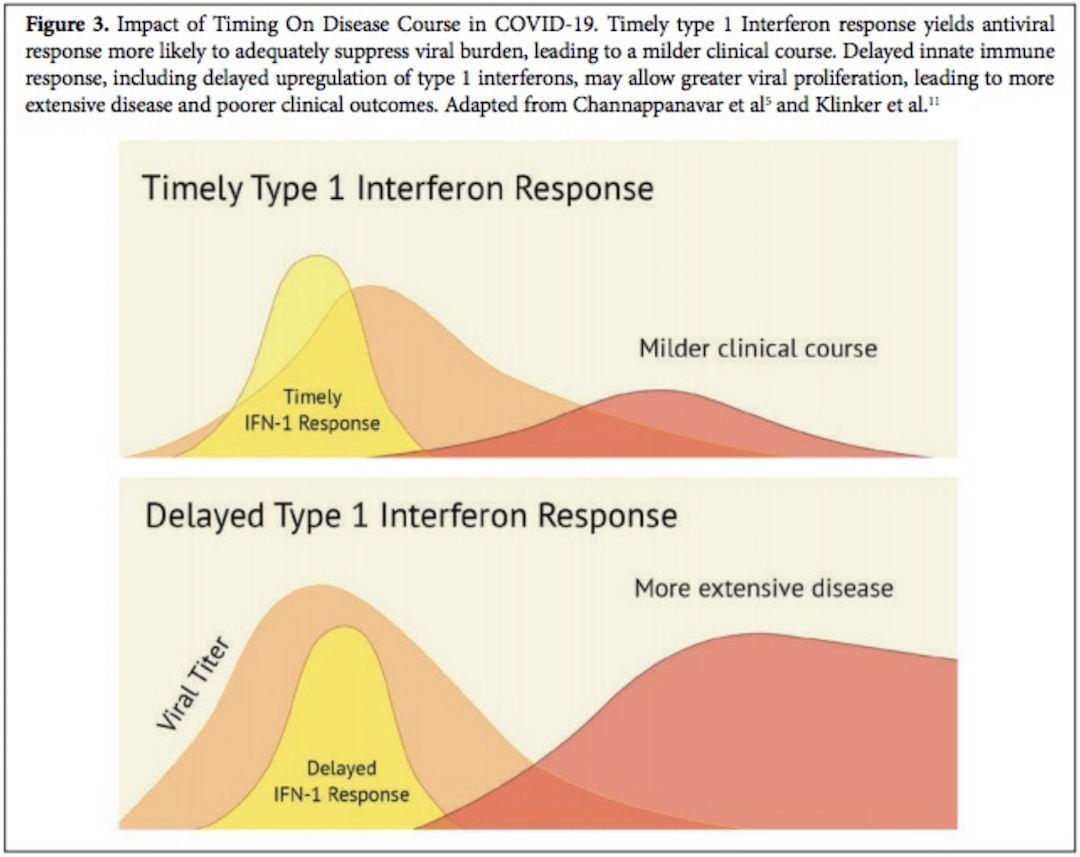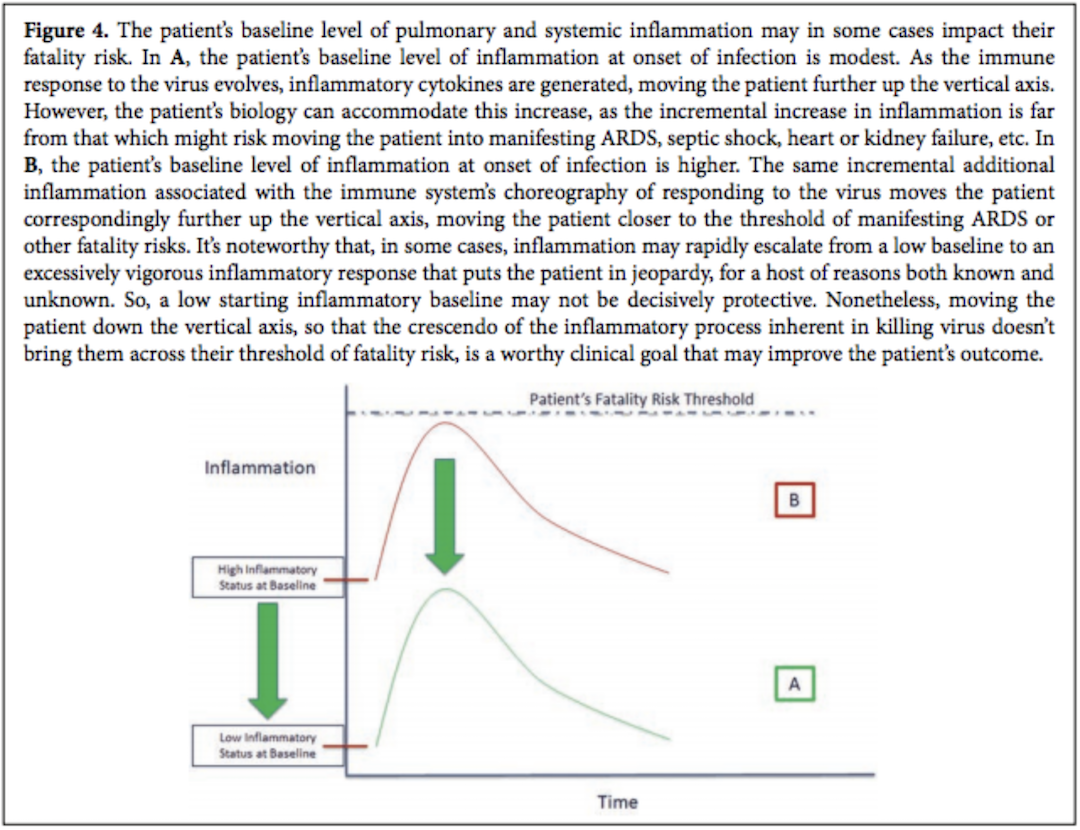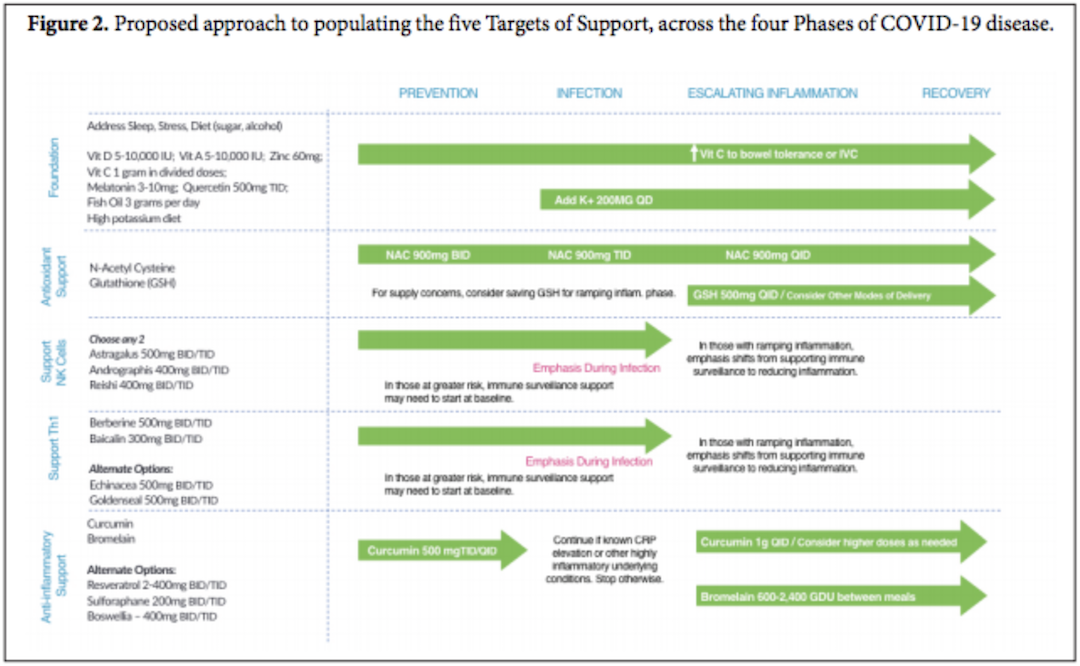
Life with Covid 19
How can you be prepared to meet the SARS-CoV-2 virus.
I am sure you have heard about a million different supplements to take to protect yourself from the COVID-19 /SARS-CoV-2 virus. They are probably all helpful, but it gets a little overwhelming sorting out what to take when, and how much. Understanding what you are trying to support in each phase of your immune system’s response is important—especially as we are about to emerge from sheltering in place and will have more exposure.
We do not know if there will be an effective vaccine or treatment for a long time, so understanding what is needed to support your immune system is the best defense you have currently. This is a complex topic for sure. The most elegant explanation I have found is in this paper that was recently published in the journal “Integrative Medicine” :
“Evidence Supporting a Phased Immuno-physiological Approach to COVID-19 From Prevention Through Recovery” by Yanuck SF, Pizzorno J, Messier H, Fitzgerald KN. IMCJ, 2020,
https://athmjournal.com/covid19/wp-content/uploads/sites/4/2020/05/imcj-19-08.pdf

I will summarize the important and practical points of that paper. The graph above shows that your immune system (yellow) — if ready and capable — will suppress the (orange) virus and the disease is milder (red). On the other hand, if the immune system does not react in a timely manner, and not have quite enough of a response, you are more likely to end up with the more severe disease.
The amount of inflammation in your body when the virus is encountered is also very important.

The figure above illustrates how if we have low levels of inflammation, we can deal with the inflammatory response to the virus (green line). If however, we start out with high levels of inflammation in our bodies, the burden of fighting the virus (red line) may put us close to or above the fatality risk threshold (Line on top) — meaning we are more likely to experience ARDS, septic shock, heart or kidney failure, etc.
The authors break the disease into 4 phases:
1. PREVENTION
This is what we can do right now and should continue doing as long as this virus is among us.
2. INFECTION
If you get the virus, you need support in fighting it.
3. ESCALATING INFECTION
This is when the immune response gets out of control — often because of underlying inflammation, and people end up in the hospital.
4. RECOVERY
Sounds simple, but 20% of people that recover from COVID 19 have a fibrotic disease 9 months later, so keeping the inflammation low is important to prevent organ dysfunction over time.
1. FOUNDATIONAL SUPPORT
DISINFECTION AND ISOLATION
This is where we started this journey, but it is still how we slow the spread most efficiently. Keeping distance, wearing masks and hand washing are still important measures to take.
SLEEP
Healthy sleep promotes sound immune response — specifically Th1 response. Disordered sleep promotes inflammation and lowers Th1 response. If you are not getting 8 hours of restful sleep every night, now is the time to work on sound sleep hygiene practices. Let me know if you need help with that. MELATONIN can be very helpful, and not only with sleep — it also decreases airway inflammation and has been shown to specifically help fight SARS-CoV-2.
STRESS
We all know it is not healthy. Cortisol is elevated in chronic and acute stress, and is known to cause inflammation and suppress the immune system. Reducing stress can be a tall order with everything going on in the world currently, but take whatever steps you can to be less stressed. Turning off the news is a good start. Stay informed but don’t spend any more time than necessary on stressful news. Find a peaceful spot in nature and spend some time just sitting there. This can be your back yard, front porch or wherever you can easily get to outdoors.
My friend, Josh Lane just published a wonderful book “Conscious Nature: The Art and Neuroscience of Meditating In Nature.” Ask me if you are interested in taking a look — I have a copy at the office. Meditate, get a massage, go to the beach, listen to relaxing music, take a walk, exercise, get neuro-feedback, get adjusted… The list is endless, but make sure to have something in place that you can do on a regular basis. Adaptogens like GINSENG or ASHWAGANDHA are some herbs that help reduce stress.
GLYCEMIC CONTROL
You have probably heard that diabetics are at higher risk for more severe COVID-19 outcomes, and that is because of the associated higher inflammation. This is also true if you have impaired glucose tolerance or insulin resistance. What that may look like is: if you are irritable, if you miss a meal, crave sweets, depend on coffee to get going, get tired after a meal, etc. Lab tests will help you determine if you have increased levels of inflammation, and it may be worth checking. This can be more complicated to control but generally avoiding foods with a high glycemic index is a good place to start.
DIET
What we eat greatly affects the inflammation in our system. In addition to high glycemic index foods, processed foods, sugar, trans-fats, oxidized fats and chemicals also increase inflammation. An anti-inflammatory diet consisting of foods rich in healthy fats and phytonutrients (multicolored vegetables) is very important. Mediterranean diet, plant-based diet and ketogenic diets all show a decrease in inflammation. AIP paleo diet is specifically designed to decrease inflammation. What is true for all the diets is that you need to eat a lot of good quality vegetables and a wide variety. Try to pack as many different veggies into your diet as possible.
LUNG and GASTROINTESTINAL MICROBIOME.
If the lung and GI microbiomes are disrupted, we are more susceptible to lung disease and viral infection. A diet hight in fiber and polyphenols (found in fruits, vegetables, seeds, whole grains, red wine, chocolate) is important. Taking PROBIOTICS and PREBIOTICS is helpful, as is Vitamin A, D and NAC. It is important to avoid smoking and air pollution. And eating many different foods works wonders here, too.
EXERCISE
Exercise is more important than ever. Moderate exercise decreases inflammation—and Intense exercise does not decrease inflammation—so it is important to find the right intensity. Doing anything but sitting in front of a screen is good. Take a walk, do yoga, swim, ride a bike — anything that gets you moving helps.
VITAMINS, MINERALS AND BOTANICALS THAT SUPPORT IMMUNE FUNCTION AND REDUCE INFLAMMATION
VITAMIN D, 5-10,00IU
VITAMIN A, 5-10,00IU
ZINC 60mg
VITAMIN C, 1 gram
QUERCITIN, 500mg
FISH OIL, 3 grams
2. NATURAL KILLER CELL SUPPORT
Natural killer cells and Th1 cells are immune cells that are extremely important in fighting SARS-CoV-2 virus, as this virus seems to destroy the macrophages that usually engulf and kill viruses. NK and Th1 cells support the macrophages and thereby increase the chance of killing the SARS-CoV-2.
Specific supplements to help natural Killer cells are:
ASTRAGALUS 500mg
ANDROGRAPHIS 400mg
REISHI MUSHROOM 400mg
3. TH1 CELL SUPPORT
Specific botanicals to support Th1 cells are:
BERBERINE 500mg
BICALIN 300mg
LICORICE ROOT
ECHINACEA 500mg
4. ANTI-INFLAMMATORY SUPPORT
POTASSIUM
TURMERIC
BROMELAIN
RESVERATROL
QUERCITIN
MELATONIN
BOSWELLIA
SULFORAPHANE
5. ANIOXIDANT SUPPORT
GLUTATHIONE and NAC are important in both supporting the immune system and the anti-inflammatory and antioxidant systems in the body. These can both be used in a nebulizer as well as taken in liquid or pill form.

https://us.fullscript.com/welcome/mnielsen

Recent Comments